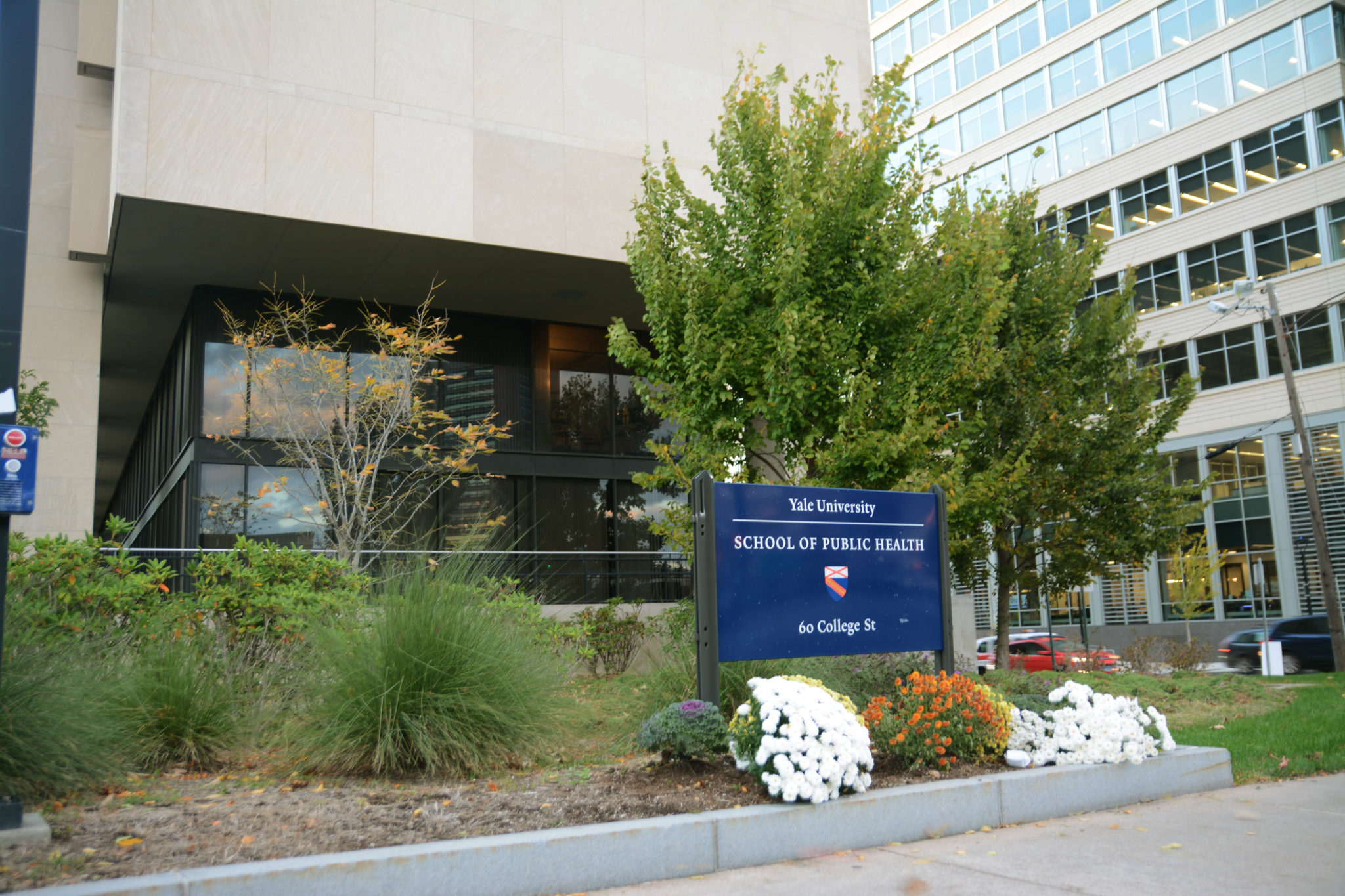
Yale Daily News
As the world continues to confront the worst public health disaster in recent history, a group of Yale faculty and alumni have called on the University to bolster its investments in the School of Public Health.
In response to an article in the News that discussed the School of Public Health’s limited funding from the University and reliance on grant revenue, Yale affiliates came together to demand that the University put its money and influence towards making significant investments in the school. The open letter was co-authored by professor of epidemiology Gregg Gonsalves ’11 and former World Bank executive Richard Skolnik ’72. On Sunday night, Gonsalves sent the letter to University President Peter Salovey and members of the Yale Corporation, the University’s highest governing body. By Tuesday, it had amassed nearly 100 signatures.
“This is the most important and opportune moment in modern history for Yale to invest in its public health school,” the letter reads. “Given its place among great global universities, in fact, Yale has an ethical obligation to urgently take the measures needed to move its public health school into the top ranks of public health schools globally.”
The letter not only calls on Yale to invest in the School of Public Health but also to commit to improving its U.S. ranking to within the top five public health schools in the country. Despite its dedicated faculty and students, the U.S. News ranked Yale’s Masters in Public Health program 15th among U.S. public health schools in 2019, according to the letter.
The University has the resources to change that, Gonsalves said.
University President Peter Salovey’s chief of staff referred the News’ questions about academic investments to the provost for comment.
As part of the upcoming capital campaign, which the University plans to publicly launch in October 2021, all individual schools within Yale can outline priorities for the campaign, and the School of Public Health is no exception, University Provost Scott Strobel wrote in an email to the News. According to Strobel, YSPH has chosen the creation of an online degree program, support for financial aid and endowing professorships as some of its fundraising priorities. Donations to other academic priorities, including the Planetary Solutions Project, should help support the School as well, Strobel said.
But, Strobel added, Yale’s investments depend on donors’ areas of interest.
“Our success in realizing these fundraising goals is dependent upon our ability to inspire donors to support the school,” he wrote.
But Gonsalves said that given the University’s vast resources — its endowment was most recently valued at $31.2 billion — not investing further in the School of Public Health is a choice, not a necessity.
Shelley Geballe LAW ’76 MPH ’95, who is an assistant professor of clinical public health and has studied and taught at both the Law School and YSPH, noted the contrast between the two schools’ resources.
“Most classes at YSPH are taught in windowless, basement classroom,” Geballe wrote in an email to the News. “YSPH has little endowment income — about a fifth of the law school’s as a share of their budgets.”
YSPH has been in the same main building since 1964, and students often take classes in the building’s basement. Courses also take place in buildings across the street, in locations that were meant to be temporary, Gonsalves said.
According to Dean of the School of Public Health Sten Vermund, the YSPH’s endowment is 0.6 percent of the University endowment, so the school has to rely on grant funding and tuition revenue. The school, therefore, has a cap of $10,000 per year for most students’ need-based financial aid.
Other universities have made sizable investments in their public health schools. For example, Harvard University in 2014 received a $350 million gift from T.H. Chan for its school. Johns Hopkins Bloomberg School of Public Health received its name in 2001 after $35 million of Michael Bloomberg’s $100 million gift to the university was devoted to that public health school.
“It’s time to stop the excuses,” Gonsalves wrote. “Yale will say it has other priorities. Well, in a pandemic, which is not our first and won’t be our last in the US, is research on public health not critical? Harvard, Hopkins, Emory and other major universities think so.”
Though the School is small, Gonsalves wrote, it “punches above its weight.” Three faculty members have won NIH Director’s New Innovator Awards, one has won an NIH Director’s Pioneer Award and another is a MacArthur Fellow.
Yale has expanded other professional schools before, Gonsalves noted, when it invested significant resources in the School of Management, for example. The University should realize the School’s value and allocate resources to the physical space, faculty recruitment and retention and financial aid support of YSPH, Gonsalves wrote.
“Yale has consistently ignored the public health school,” Gonsalves wrote. “Come down and see the facilities.”
But Strobel wrote that the school has the University’s full support and that Yale appreciates the contributions that members of its public health community have made.
No matter what, Gonsalves said, public health experts at Yale will continue to do the work to protect people from the virus.
“We protect the nation against threats like SARS-CoV-2 even if public health is usually ignored, even if we could all make a lot more money by pursuing other opportunities,” he wrote. “It’s a mission for us, our life’s passion and work.”
Signatories on the letter include Vanessa Kerry ’99, CEO of Seed Global Health; Harlan Krumholz ’80, cardiology professor and director of the Center for Outcomes Research and Evaluation at the School of Medicine; and Barbara Herz GRD ’74, former senior adviser for the social sectors to U.S. Treasury Secretary Lawrence H. Summers.
Sydney Gray contributed reporting.
Rose Horowitch | rose.horowitch@yale.edu







